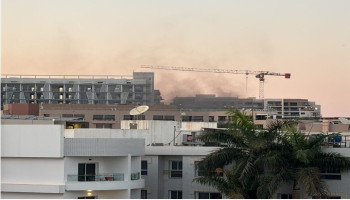Leader of the Revolution Sayyed Abdulmalik Badr al-Din al-Houthi described the September 21 Revolution as a “historic and liberating achievement for the Yemeni people,” stressing that the uprising marked a decisive break from foreign domination and restored national sovereignty.
In a televised address on Sunday marking the 11th anniversary of the revolution, the leader underscored that the most distinctive feature of the September 21 movement was its authenticity, being free of external influence or dependency.
He said the revolution emerged from a purely popular will and was self-funded through community contributions, reflecting the Yemeni people’s reliance on Allah and their own sacrifices.
“Our people’s trust in Allah, their efforts, sacrifices, and awareness of the significance of their mission led to this great victory,” he affirmed.
Sayyed Abdulmalik emphasized that the revolution’s core aim was to end foreign tutelage over Yemen.
He recalled how, before 2014, foreign ambassadors—particularly the US envoy in Sana’a—held decisive sway over state decisions, effectively acting as “the president’s president,” undermining Yemen’s sovereignty and serving external interests.
He contrasted this with the revolution’s conduct, which, he said, was characterized by high discipline and restraint, even toward its fiercest opponents. The movement, he stressed, avoided political vendettas or abuses, instead prioritizing security and stability for all Yemenis regardless of political affiliation.
The leader also criticized regional and international actors aligned with Washington and the Zionist entity, accusing them of financing media campaigns and subversive projects to fragment Yemeni society along sectarian, tribal, and regional lines. He argued that these “tools of the Americans and Zionists” lacked any genuine project for Yemen, instead promoting discord and strife.
“The September 21 Revolution was clean and untainted, unlike the enemy’s instruments that serve foreign agendas. Even after victory, we offered the Peace and Partnership Agreement, which was nationally and internationally recognized, only to be overturned by local factions under foreign directives,” he said.
The September 21 Revolution, led by Ansarullah in 2014, toppled Yemen’s former government and ended years of US tutelage over the country’s decision-making. Since 2015, Yemen has faced a devastating US-Saudi-led military intervention. The war, now in its second decade, has entrenched Ansarullah as the dominant force in northern Yemen, while Yemen’s alignment with the Palestinian cause and its confrontations with the Israeli enemy in the Red Sea have given the revolution a regional dimension.







